Census & Elections
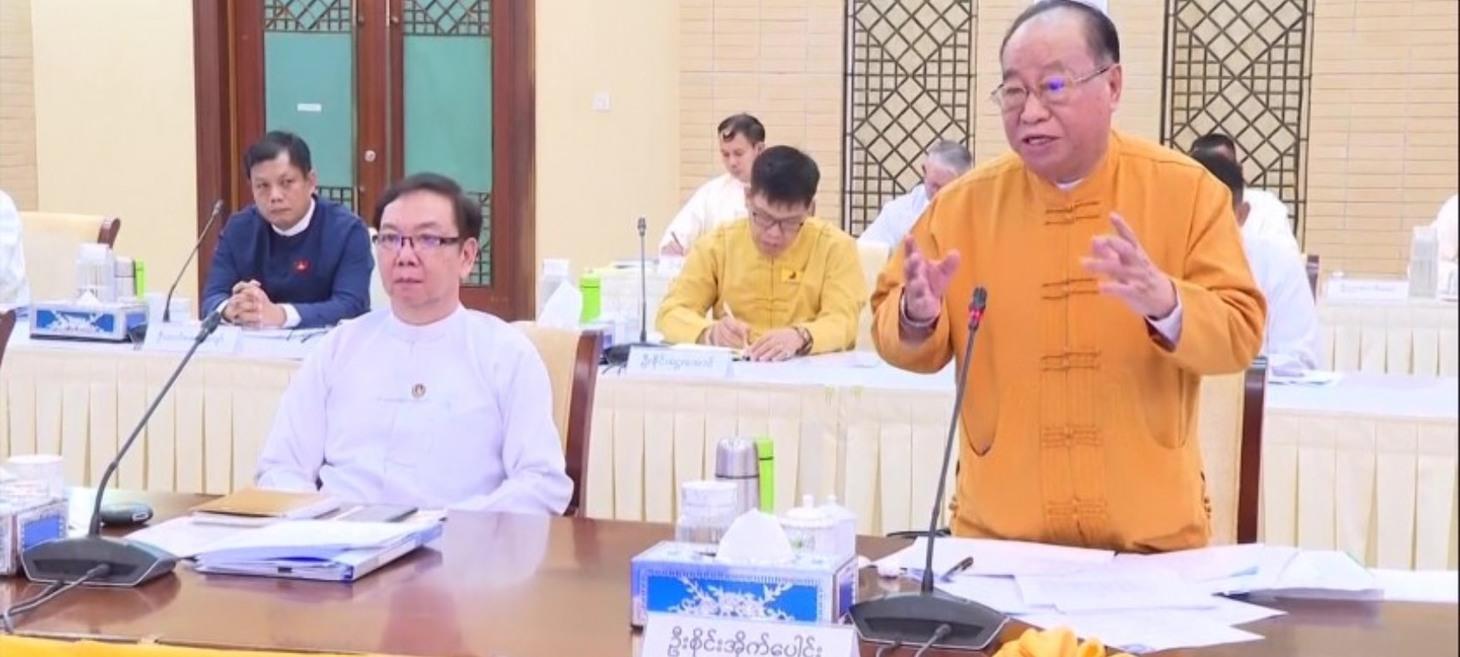
Election Talks in Myanmar Are Touching on Amending The Constitution, Junta Says
The junta's peace negotiators engaged with representatives from four remaining legal political parties in Naypyitaw to discuss plans for a post-coup election following coup leader Min Aung Hlaing's commitment to hold one next year. The two-day meeting focused on amending the military-drafted 2008 constitution, touching on critical topics in a bid to move towards a democratic and federal union. The National Solidarity and Peace Negotiation Committee led discussions involving representatives from political parties with typically limited public support, excluding the major political party, the National League for Democracy (NLD). Despite uncertainties around the election date, the parties and junta worked to establish common ground on constitutional amendments to avert conflicts potentially. Expectations are high that these negotiations could pave the way for significant changes, although specific details of the proposed amendments remain undisclosed.
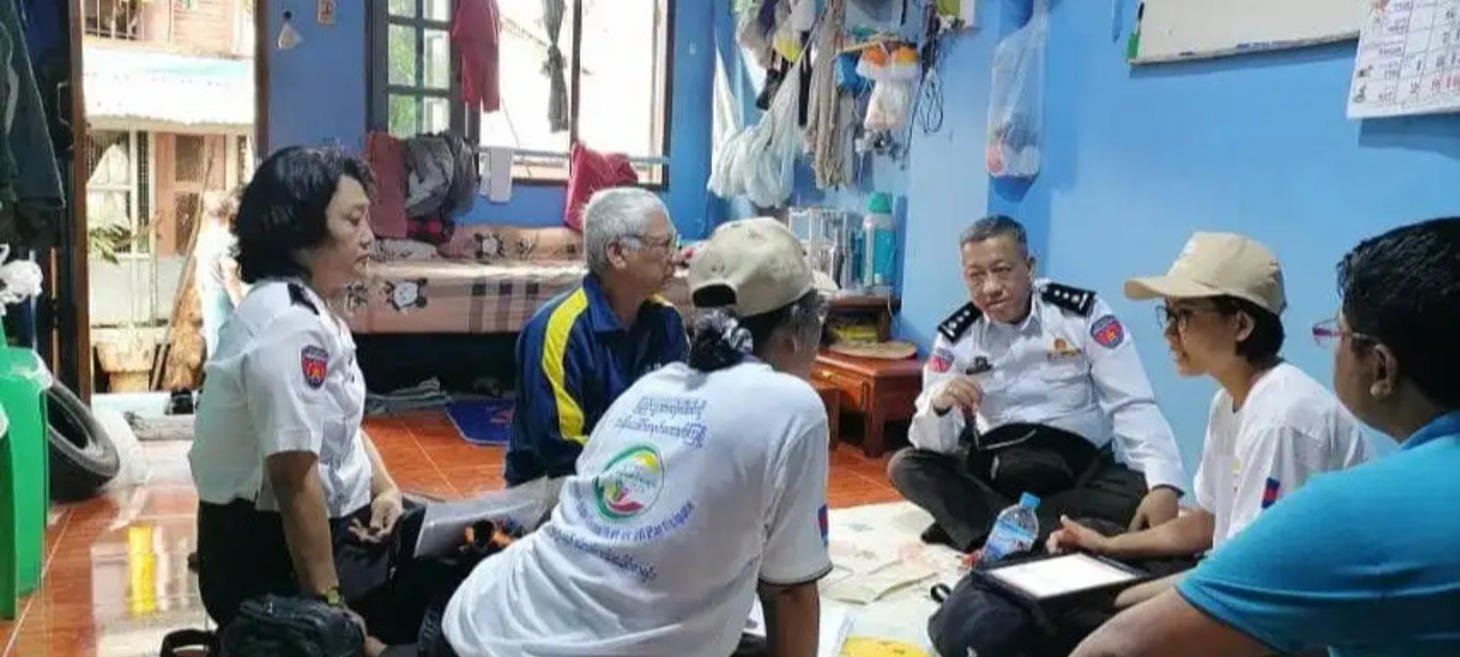
The Regime Pushes Ahead with Sham Census - More than 50% of Myanmar No Longer Under Junta Control
The Junta has initiated preparations for a nationwide population census in areas under its control, distributing awareness pamphlets and erecting billboards in various towns and villages. The billboard installations have primarily taken place in regions like Yangon, Mandalay, Ayeyarwady, and others, with a focus on 10-15 townships in specific areas. However, regions where the Junta faces resistance, like Sagaing, Kachin, and others, have not yet seen effective census efforts. Challenges loom large, particularly in conducting a comprehensive census in rural areas where control is limited and resistance strong. Despite the Junta's plan to utilize technology like computer support systems and mobile tablets for data collection, the effectiveness of the census campaign remains uncertain, given the complex political landscape with EAOs and resistance groups actively opposing the regime.
Conflict
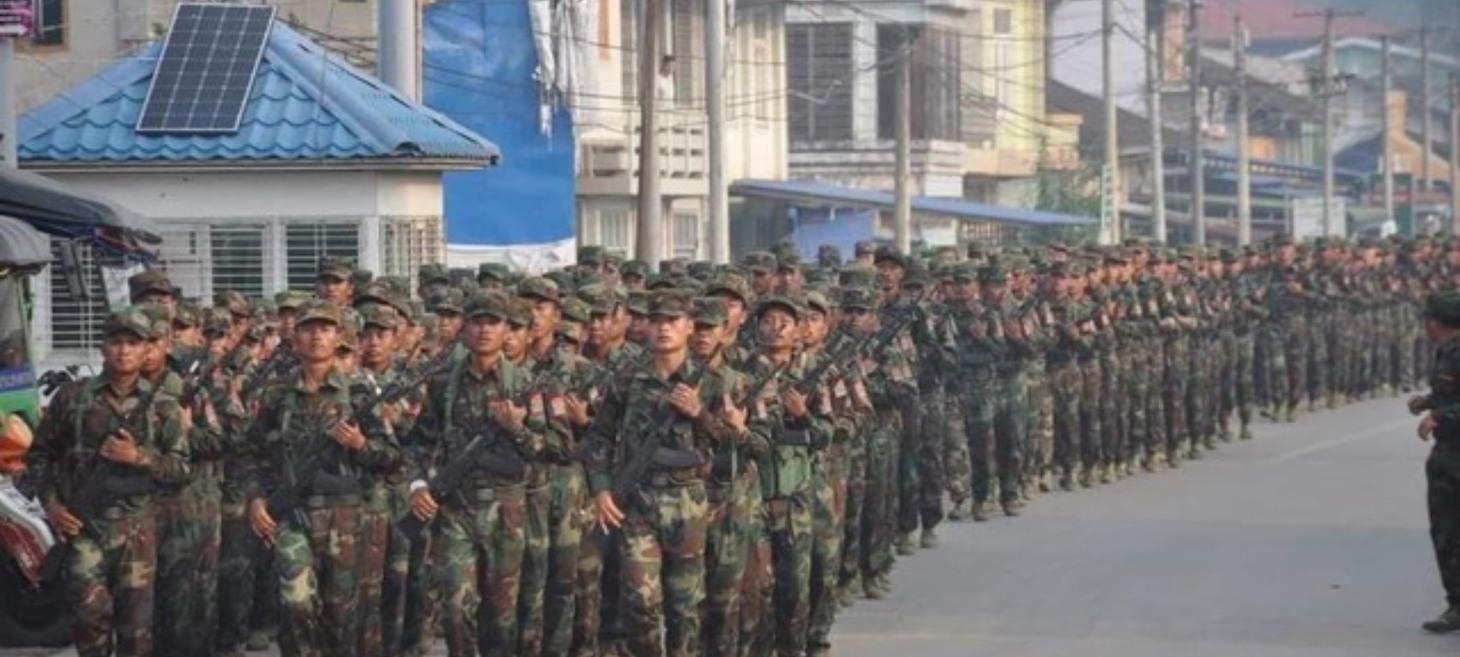
TNLA Restarts Operation 1027 Against Myanmar Junta
The Ta'ang National Liberation Army (TNLA) reignited Operation 1027 in northern Shan State in response to alleged ceasefire violations by Myanmar's junta, resulting in clashes at various locations. The TNLA targeted junta forces in Kyauk Kyan village and Nyein Chan Yay hill, prompting retaliatory airstrikes and civilian casualties. In parallel, the TNLA and local People's Defense Forces (PDFs) coordinated attacks and warned civilians against regime forces. Escalating tensions included repeated drone attacks and shelling by the junta, leading to casualties and infrastructural damage. The resumption of hostilities signifies the fragile nature of the Chinese-brokered ceasefire, with the Brotherhood Alliance retaliating against junta aggression despite previous territorial losses and promises of cessation of hostilities under the ceasefire agreement.
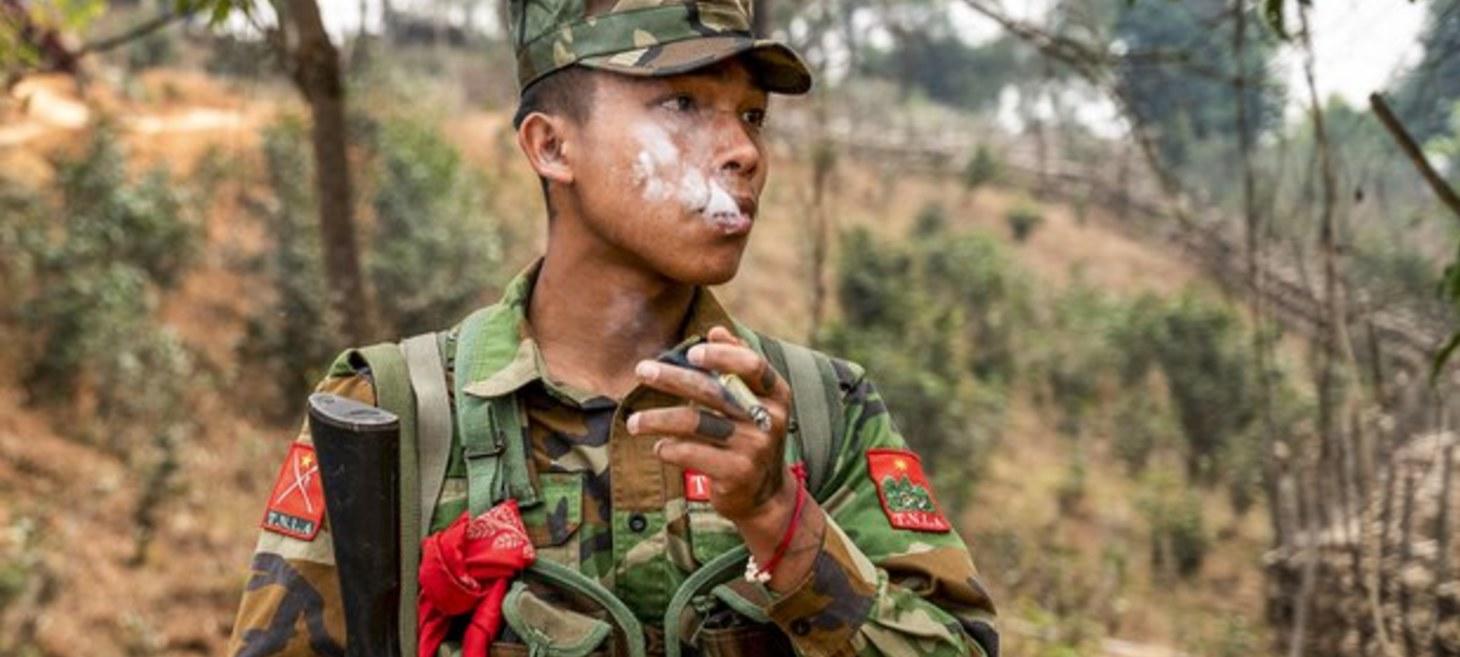
Ceasefire in northeast Myanmar ends as junta battles ethnic rebels
Fighting has resumed in northeast Myanmar after a five-month ceasefire, brokered by China between junta forces and ethnic minority insurgents, collapsed. Clashes in Shan state began due to attacks by junta forces on the Ta'ang National Liberation Army (TNLA) positions, including air strikes that forced villagers to flee. The TNLA, part of the Three Brotherhood Alliance, was initially engaged in talks facilitated by China to protect its economic interests. However, recent violations of the ceasefire by the junta's airstrikes and artillery attacks have led to severe fighting, with the TNLA defending its positions. The conflict spread across several villages, leading to civilian casualties and displacement. The renewed fighting is seen as a strategy to divert military focus from the Arakan Army, but it could escalate further with potential attempts by insurgents to control additional townships. The junta appears to be preparing for broader conflict by blocking key roads and imposing restrictions on essential supplies, exacerbating shortages and increasing hardships for local residents.
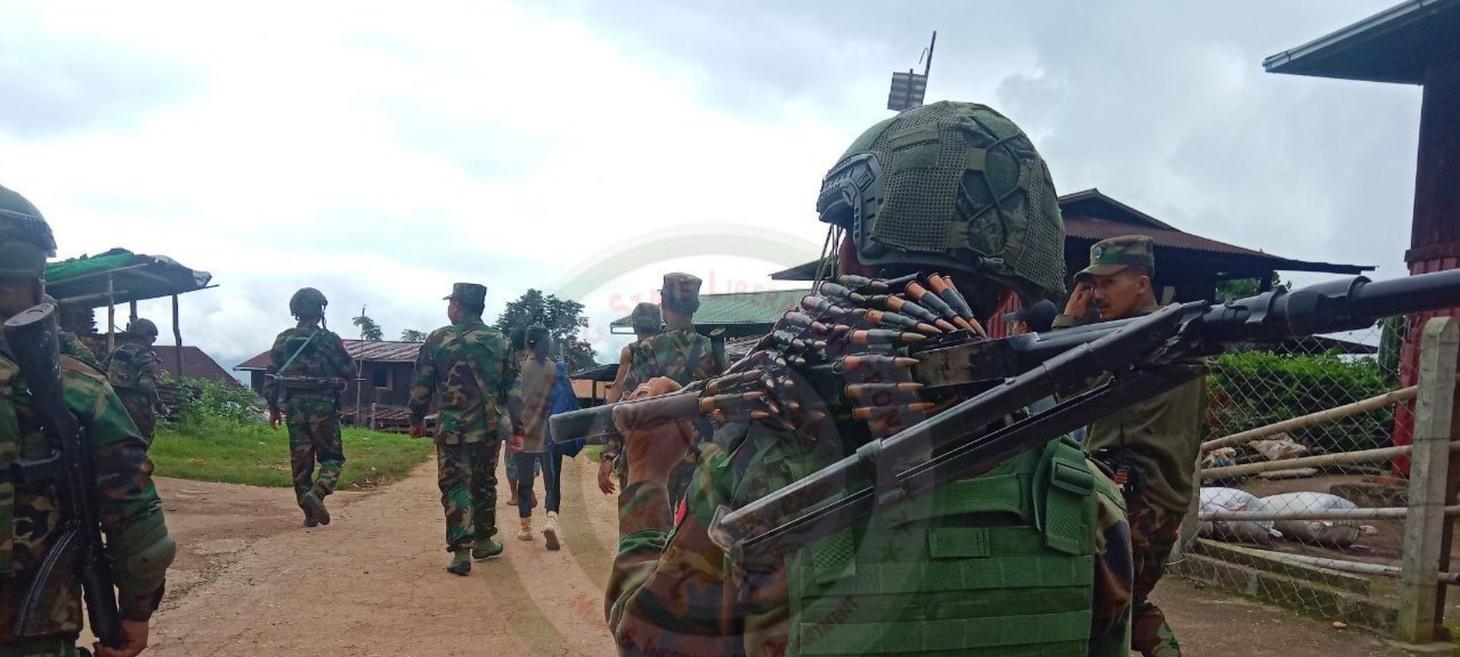
TNLA Seizes Town and Myanmar Regime Positions in Northern Shan State
In recent developments in northern Shan State, the Ta’ang National Liberation Army (TNLA) and its allies have captured Nawnghkio town and made significant advancements in Kyaukme town, seizing junta administration offices amidst regime artillery strikes on residential areas. The TNLA claimed attacks on junta military units outside the towns, resulting in clashes causing civilian casualties and forcing residents into vulnerable situations with power and communications disruptions. Reports of surrendering junta troops, civilian fatalities due to shelling, and ongoing clashes highlight the escalating conflict as the TNLA relaunches Operation 1027 following ceasefire violations and increased hostilities with the junta. The operation, impacting multiple territories and trade routes, underscores the volatile situation in the region and the mounting human toll amid the power struggle between the armed groups and the military regime.
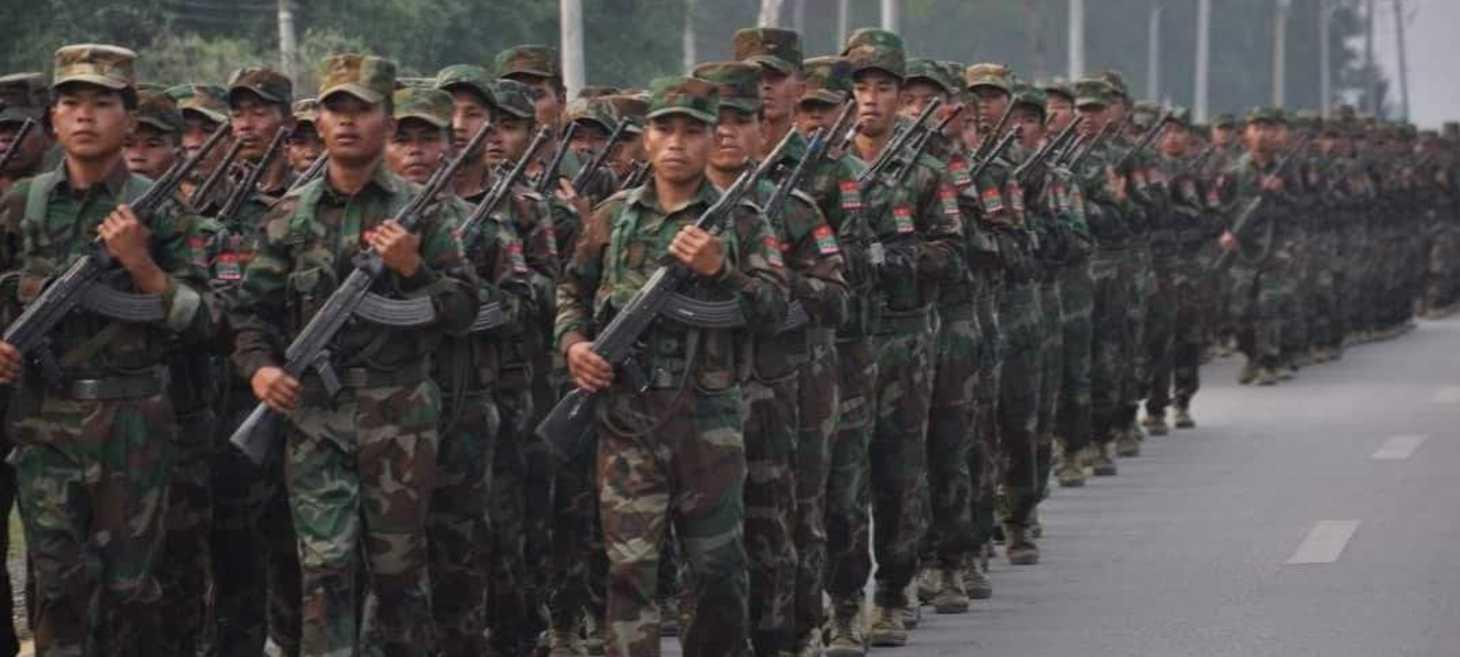
Regime Continues Attacks in Nawngkio Township
In Nawngkio Township, northern Shan State, the Military Council has intensified attacks using drones and artillery targeting the Three Brotherhoods Alliance, resulting in damage to homes and causing injuries to civilians. Reports indicate a woman was wounded during the bombardments, which have caused significant destruction in the area. The attacks, suspected to target specific Alliance members, have instilled fear among residents, leading some to seek safer locations. The Ta’ang National Liberation Army (TNLA), part of the Alliance, confirmed the assaults on specific villages, detailing multiple instances of shelling and drone attacks conducted by the junta since the beginning of June. The escalation of violence in the region has resulted in casualties and injuries, highlighting the ongoing conflict's toll on civilians in the area.
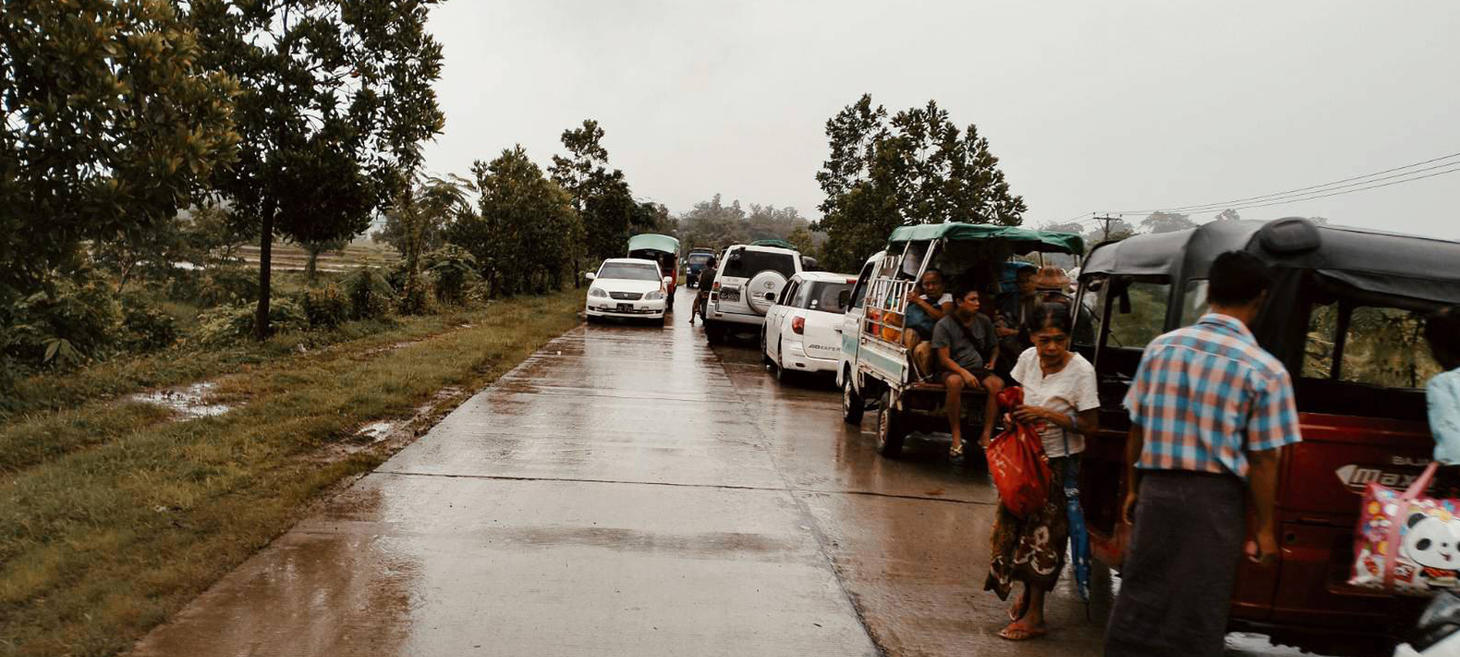
Myanmar Junta Police, Officials Flee Rakhine State’s Thandwe as AA Closes In
As the conflict intensifies between the Myanmar regime and the Arakan Army (AA) near Thandwe in Rakhine State, local reports indicate that junta police and government workers have evacuated the town. While initial accounts suggested police surrendered to the AA, residents clarified that police actually fled in plain clothes with their weapons, with rumors of exchanges of fire after AA attacks. Senior police officials reportedly instructed officers to leave, leading municipal and Immigration Department staff to hastily evacuate up to 10 miles away without their belongings. Additionally, guards at Thandwe Prison were relieved of duty, and residents fled the town amidst fears of junta air attacks, further amplified when an unexploded bomb from a junta jet struck a house in Thandwe on Monday morning.
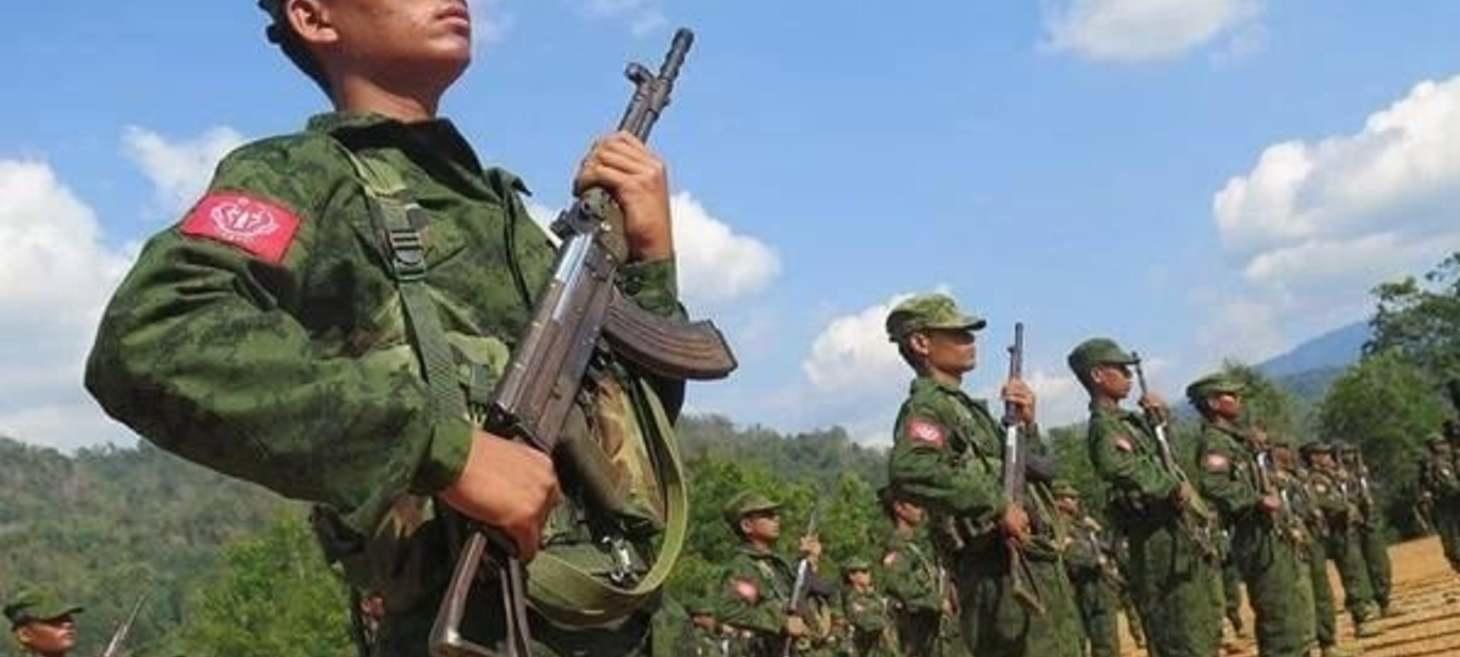
Arakan Army Captures Taw Hein Strategic Hilltop Base in Ann township, Rakhine State
On 23 June 2024, the Arakan Army (AA) successfully captured the strategic hilltop base Taw Hein in Kazugai Village, Rakhine State, after three months of fighting, from the junta’s Western Command. They seized significant ammunition and took numerous junta soldiers as captives, while also providing medical aid to the injured. Following the capture, a junta fighter jet bombed the base, causing nearby villagers to flee. This base, crucial for defending the Western Command headquarters, had approximately 600 stationed troops, and its seizure poses a threat to Ann Town, leading to an increased military presence by the junta. The AA, which has intensified its offensive since November and currently controls nine towns in Rakhine State as well as Paletwa in Chin State, continues to engage in heavy combat, causing the military situation in the region to remain highly volatile.
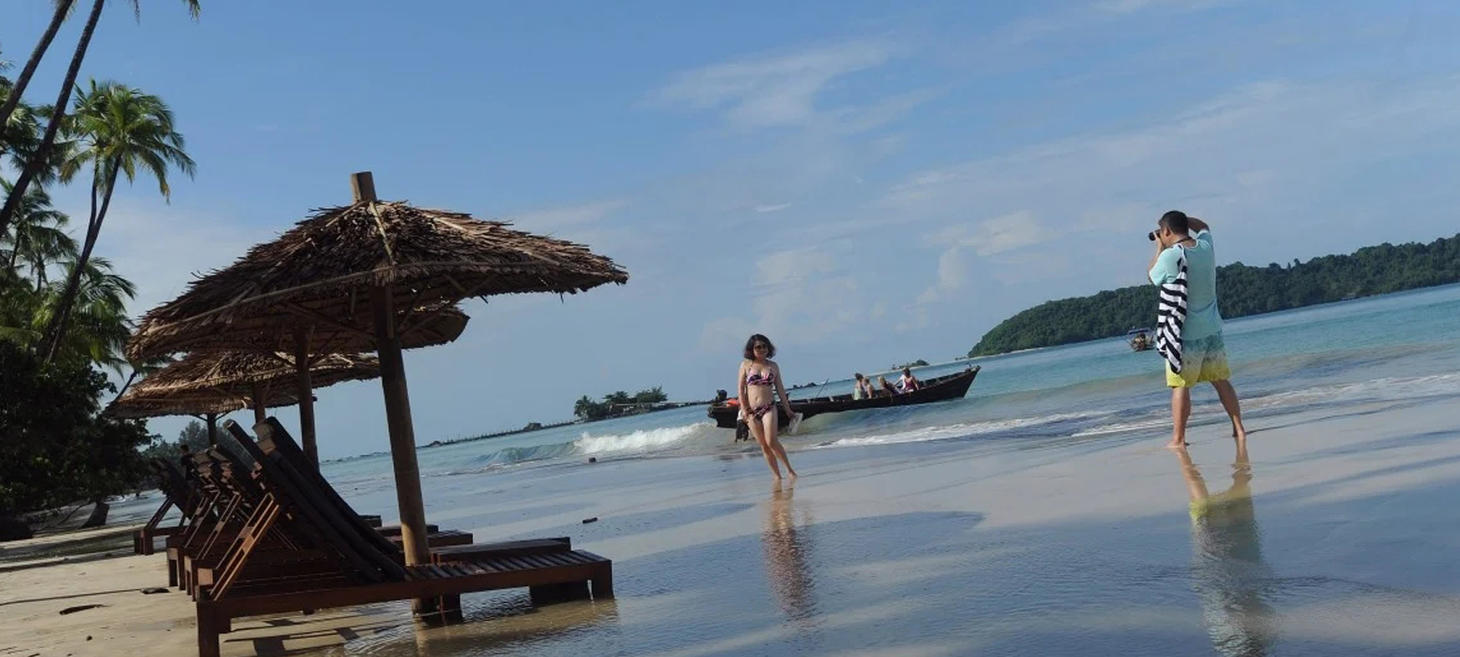
In Western Myanmar, an Ethnic Landlord is Poised to Liberate ‘Crony Beach’
The Arakan Army’s recent capture of Thandwe Airport in Rakhine State places them in close proximity to Myanmar's most valuable beach, Ngapali, known for its fine white sands and turquoise waters. This strategic victory disrupts the supply lines that the junta utilized to reinforce its troops and jeopardizes the lavish resorts owned by influential tycoons with deep military ties. High-profile cronies, including those closely linked to junta leaders, face a dire dilemma: risk losing their investments or negotiating with the Arakan Army. The monsoon season further complicates the junta’s ability to send reinforcements, as road access and sea supplies are treacherous. With the fall of Thandwe Airport, the crony-owned resorts along Ngapali Beach, meticulously built over decades of military rule, are now at the mercy of the advancing Arakan Army.
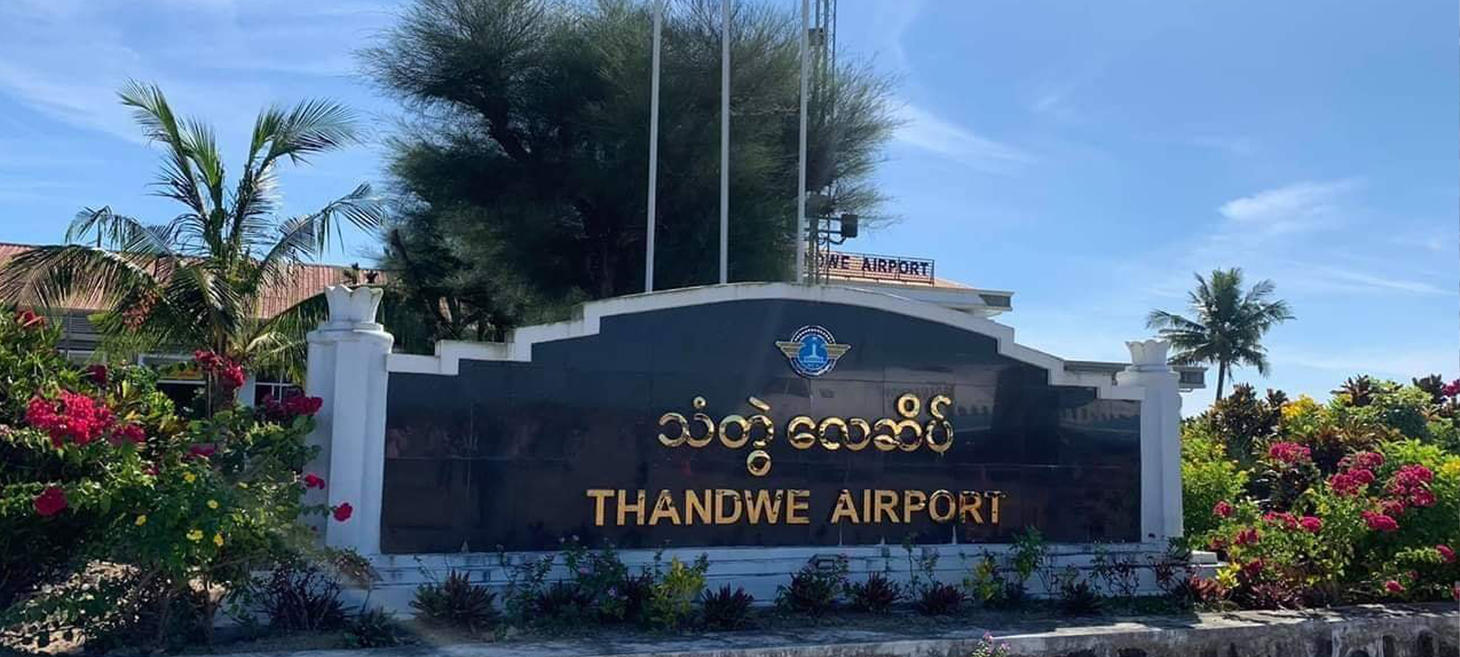
AA Seizes Thandwe Airport Near Rakhine’s Ngapali Beach, Local Sources Say
The Arakan Army (AA) successfully took control of Thandwe Airport, a crucial entrance point to Ngapali Beach in Rakhine State, marking the first seizure of an airport by an anti-regime ethnic armed group since the 2021-armed uprisings began. Violent clashes ensued between the AA and junta troops near the airport, with reports of captured soldiers and police members. Despite the regime's silence and denials on the incident, artillery deployment and fleeing junta soldiers indicate escalating tensions. Civilian casualties were reported due to junta fighter jet bombings as residents fled the area amid intensified fighting. The AA's strategic gains in Rakhine, including the seizure of multiple towns, reflect the ongoing conflict dynamics in the region.
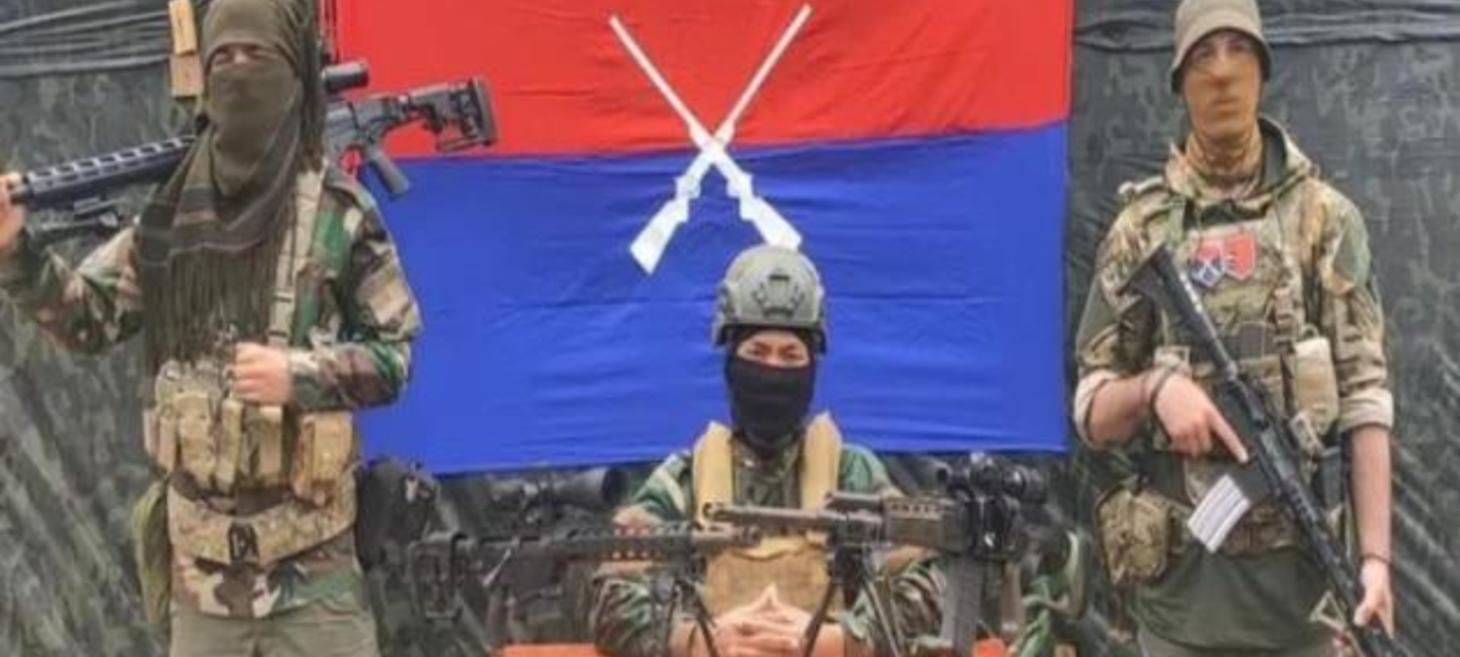
Crossing borders for justice: Foreign veterans battle Myanmar's military regime
Foreign volunteers, including a former British soldier and an American fighter, are joining anti-coup groups in Myanmar to combat the military regime, inspired by the country's resilient resistance against the oppressive military authority. These individuals have embraced the all-or-nothing nature of the conflict and the bravery of the local anti-regime fighters. While Myanmar has a history of ethnic armed groups receiving international support, the post-coup atrocities have escalated, drawing attention to indiscriminate military airstrikes and civilian harm. Despite the risks of prosecution in their home countries, these foreign volunteers, who have combat experience in other conflict zones like Ukraine and Syria, offer their expertise to assist opposition forces, emphasizing the fight for freedom and democracy. Python's contingent to assist PDF Zoland in Chin State highlights the global solidarity in anti-authoritarian struggles seen as interconnected worldwide.
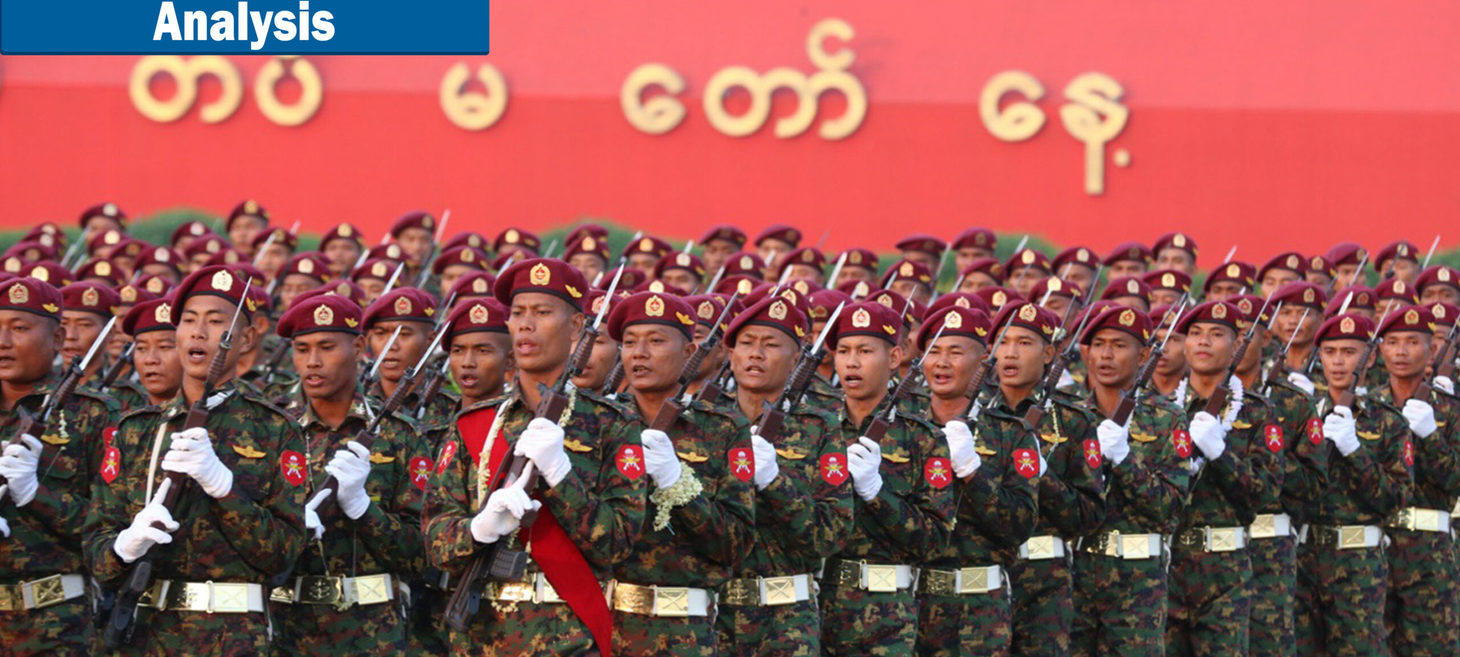
Counting the Myanmar Junta Battalion HQs Lost to Resistance Attacks
Following the 2021 military coup, Myanmar's regime encountered a significant armed uprising involving well-established ethnic revolutionary groups and newly formed resistance factions, leading to groundbreaking losses for the military. Noteworthy defeats include the loss of key military bases and strategic headquarters and the weakening of control over various regions, resulting in the fall of numerous towns to anti-regime forces across the country. These setbacks have marked a shift in the dynamics of the conflict, with operations extending from peripheral regions to core territories, underscoring the escalating resistance against the military regime.
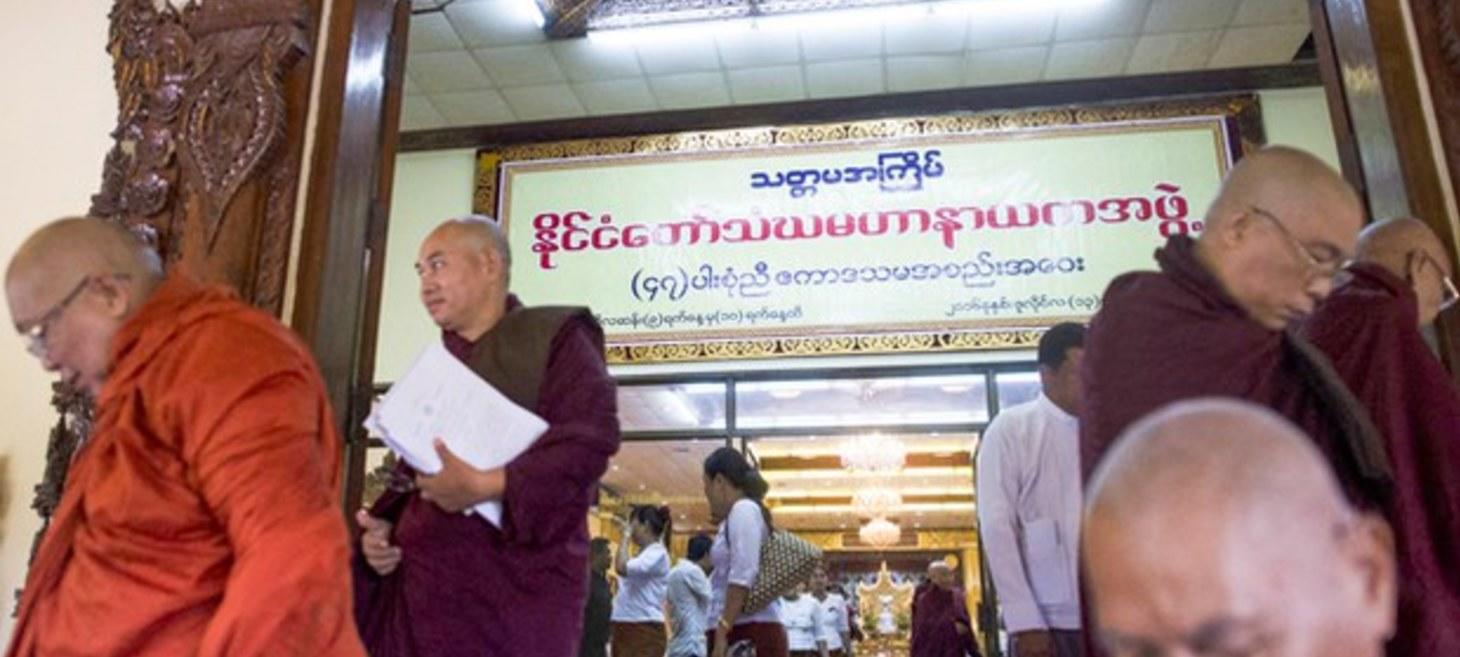
Senior Myanmar monk shot dead by junta soldiers, colleague says
In a tragic incident, Sayadaw Bhaddanta Munindabhivamsa, a senior Buddhist monk in Myanmar, was fatally shot in his car while leaving an airport in the Mandalay region, reportedly by junta soldiers according to a colleague who was present during the attack. Despite the junta-controlled media attributing the monk's death to rebel fighters in a supposed firefight, a video circulated on social media featured the monk's companion detailing how soldiers in a truck shot at the car without knowledge of monks inside, resulting in the abbot's killing and injuries to others. The monk's cremation is set for June 27, marking a solemn conclusion to this tragic event that has sparked debates and raised questions about accountability in Myanmar's ongoing turmoil.
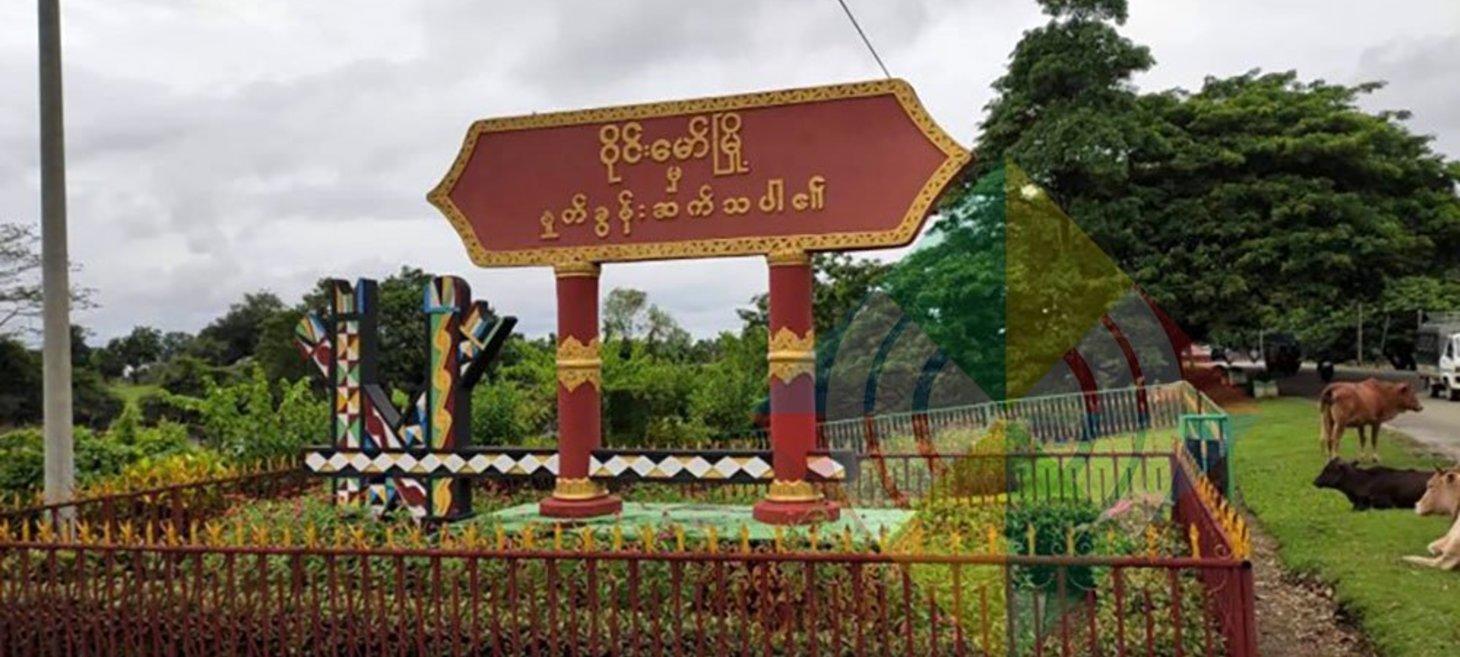
Rising Civilian Casualties as Regime Shelling Intensifies in Waingmaw
In Waingmaw Township, Kachin State, a 57-year-old woman tragically lost her life when a regime shell struck near her home in Theim Gyi Su while she was eating mangoes, causing fatal chest injuries. Eyewitnesses attribute the shell firing to the Burma army in Myitkyina, the Kachin State's capital town, amid ongoing clashes with the Kachin Independence Army (KIA) and People's Defense Force targeting Burma army installations in the area. The escalating fighting has led to civilian casualties and displacements, with approximately 3,000 people in Waingmaw town facing uncertainty and challenges in finding safe refuge due to the volatile situation and transportation limitations. Such incidents underscore the harrowing toll of conflict on civilians caught in the midst of the turmoil in Kachin State.
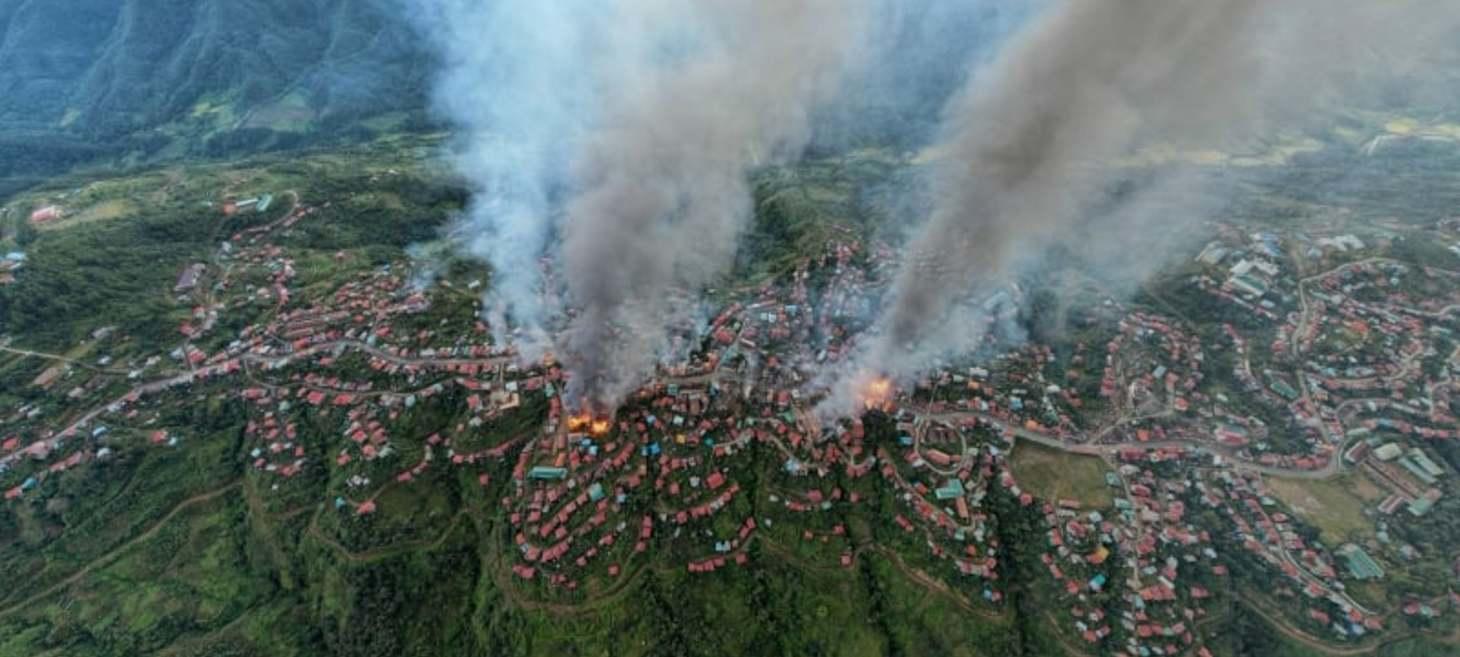
Myanmar junta recaptures strategic Taingen Camp in Chin State
In a military operation on 20th June, the Myanmar military junta successfully recaptured the Taingen camp previously held by the Joint Chin Defence Forces in Tedim Township, southern Chin State, a development confirmed by the Chin Defence Force (CDF/CDM SIYIN). Approximately 100 junta soldiers launched an assault on Taingen village camp, despite initial resistance from defense forces, resulting in the camp's takeover due to the armed forces stronger firepower. This military advance has led to increased tensions in the region, prompting residents along the Tedim-Kalay Road to flee to safer areas, concerned about further military incursions. The recapture of Taingen camp follows the junta's recent success in reclaiming the Kennedy Peak outpost in Tedim Township from PDF Zoland forces on 18th June, reflecting ongoing clashes and power shifts in the area.
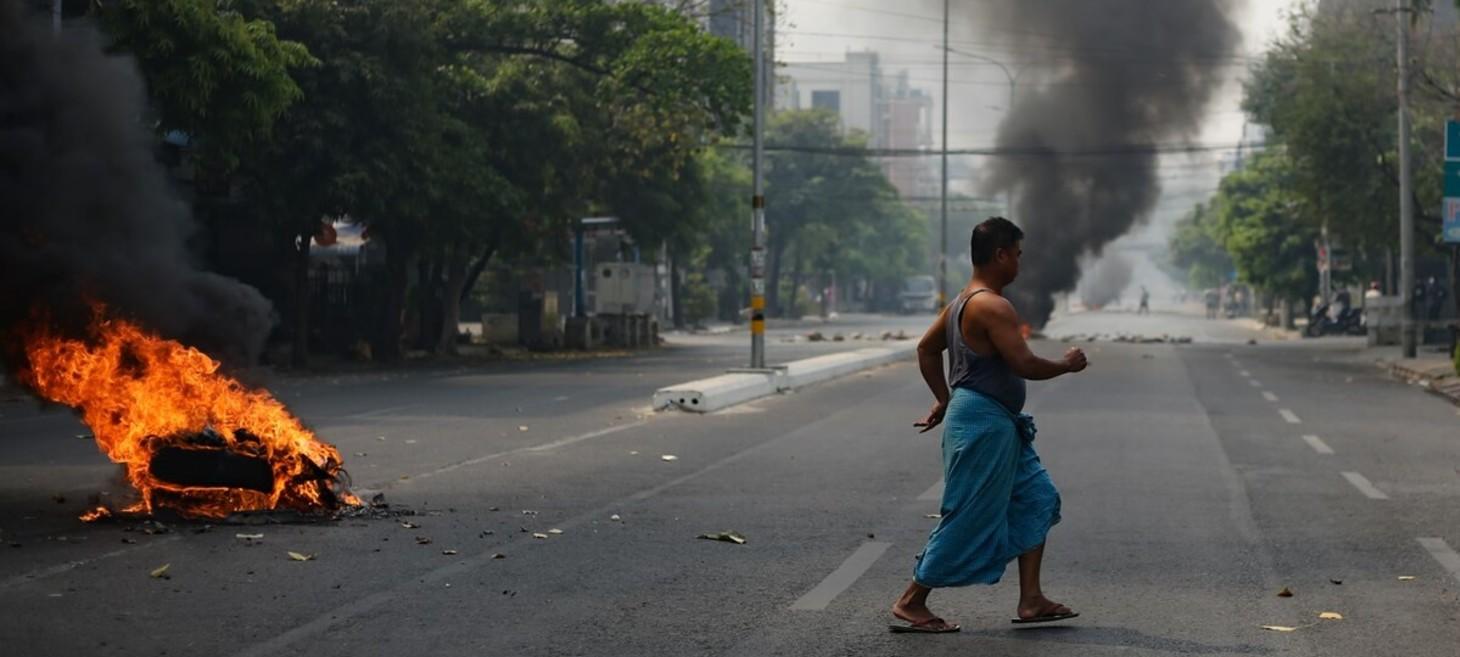
Myanmar: From Failed State to Total Collapse?
Following Myanmar's military coup in February 2021, the junta initially appeared poised to overpower the emerging unified resistance, bolstered by its powerful armed forces and access to modern war equipment. The resistance, comprising a coalition of ethnic armed groups and disillusioned young fighters, faced grim odds against the junta's airpower and military strength. However, a significant shift has occurred in the past two years, with the junta facing challenges as internal strife and defections deplete its ranks. Hindered by sanctions and a dwindling supply of weapons, the junta's grip on power has weakened, while opposition forces have gained ground and advanced weaponry through successful battles. Despite China's tentative support, it is increasingly uncertain about the junta's future, engaging in talks with opposition factions. While the war remains ongoing, the momentum has shifted, raising the likelihood of the junta's eventual downfall and necessitating preparation for post-junta scenarios among foreign stakeholders.
Conscription
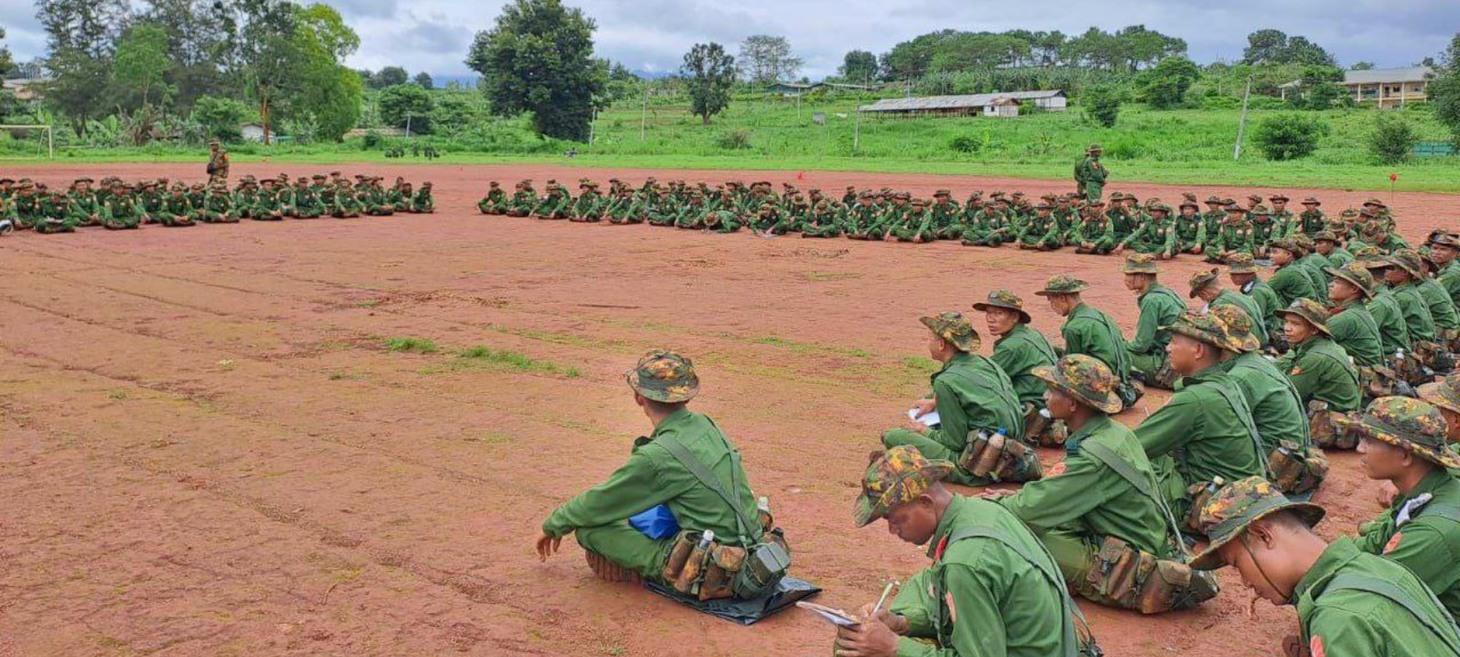
First Myanmar Junta Conscripts to Begin Duty at End of Month
The Myanmar junta is set to deploy the first group of 5,000 conscripts, following the enforcement of a conscription law earlier this year in response to widespread opposition to their coup. Men aged 18-35 and women aged 18-27 can be summoned to serve for at least two years, with the initial batch of recruits completing training by the end of June. These conscripts will be distributed to various military commands across the country, chosen by the commands themselves. The military faces challenges in meeting recruitment quotas amid ongoing resistance from established ethnic minority armed groups and newly formed People's Defense Force groups. The conscription law, dormant since 2010, allows service extension during emergencies, with penalties for those failing to comply. Despite reports of forced recruitment, the junta denies such actions as Myanmar grapples with escalating turmoil since the 2021 coup, resulting in thousands of deaths and arrests in the ensuing crackdown on dissent.
Economy
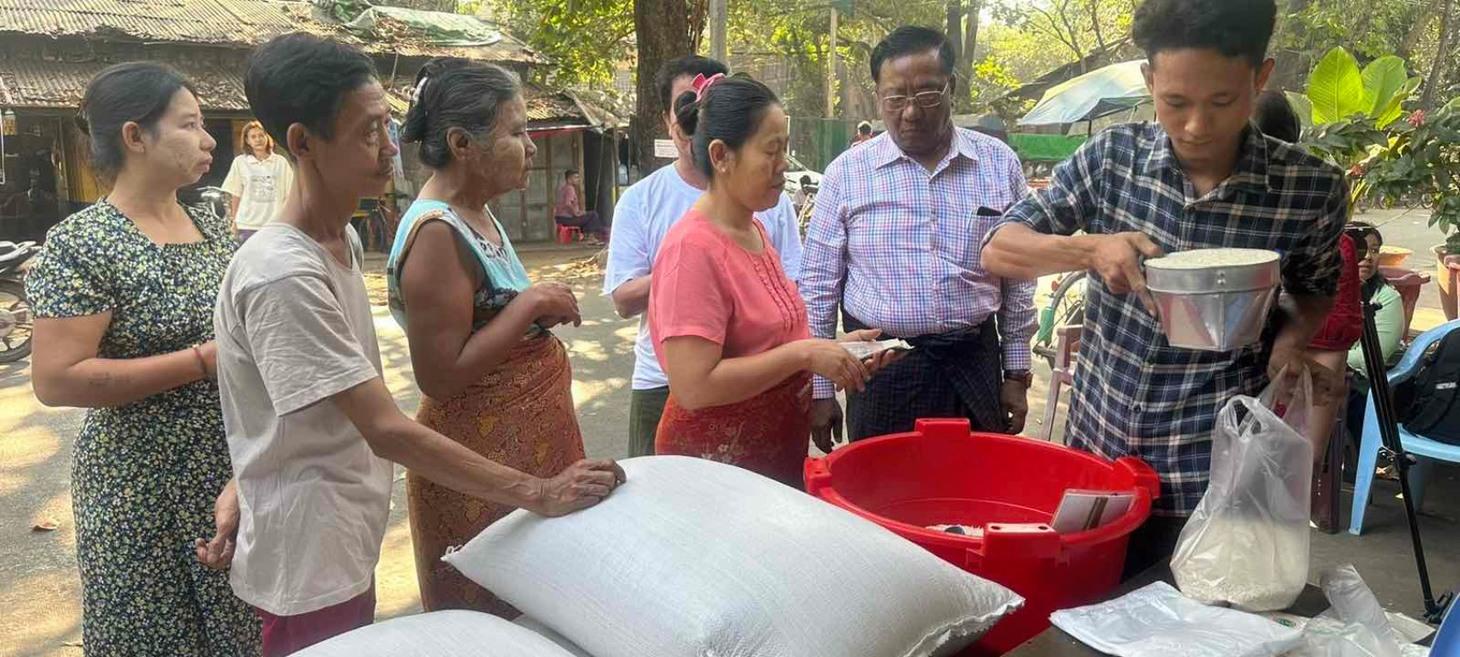
Myanmar's Generals Take Another Shot at Market Prices And Hit Consumers
In response to soaring rice prices, the junta in Myanmar sought to stabilize the market through arrests and enforcement measures, including capping retail prices for rice, which led to disruptions in Yangon's largest rice wholesale market and market volatility. While attempts to regulate prices were met with skepticism and backlash from business communities, the crackdown resulted in operational challenges and limited sales at wholesale markets, impacting both merchants and consumers. Amid concerns over economic mismanagement by the regime and the irreversible damage on the country's economy and food security, experts emphasize the need for a deeper understanding of market dynamics and sustainable strategies to address rising costs and inflation levels.
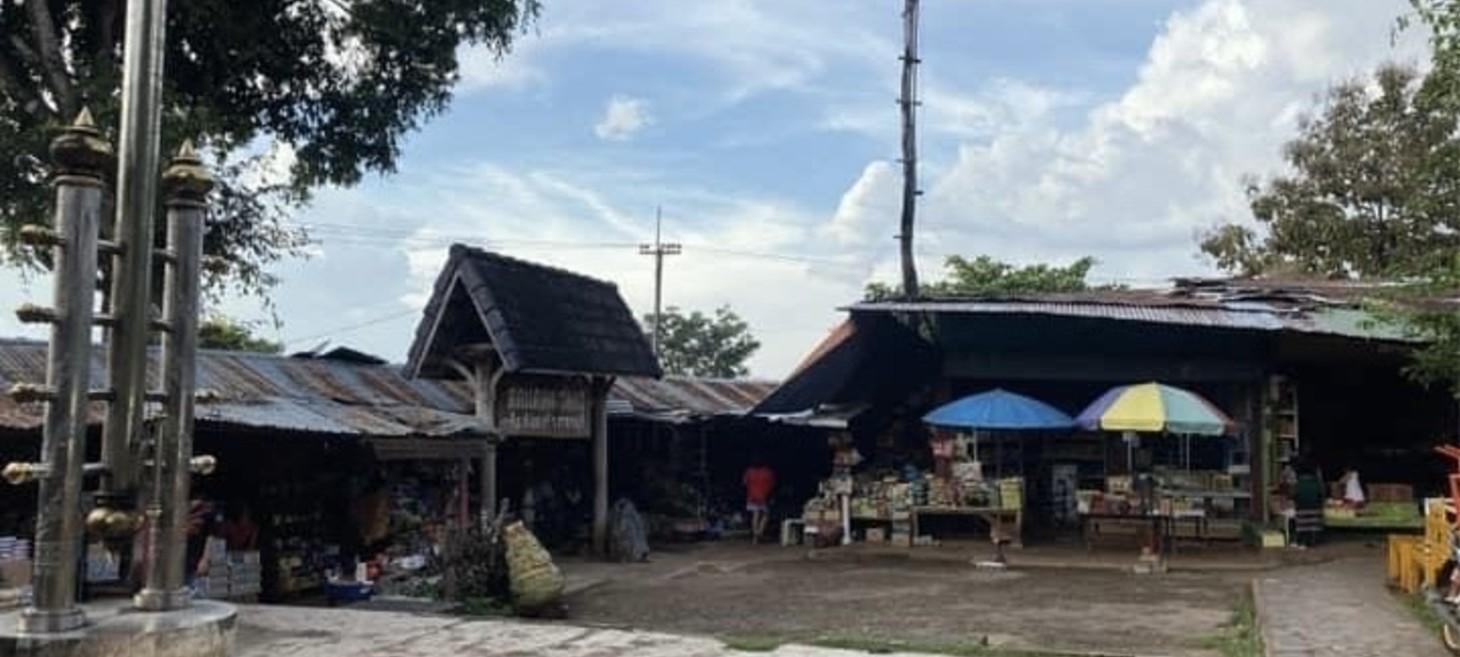
Both Thai Authorities and Armed Groups Temporarily Block Three Pagodas Pass
On the Thailand-Myanmar border, the temporary closure of the border trading post of Payathonzu by armed organizations on the Myanmar side, along with similar restrictions by Thai authorities, has halted the passage of cargo container vehicles, disrupting import and export activities between the two countries since June 17. Traders are facing challenges, anticipating potential shortages and price increases, as lorry drivers suspend operations due to uncertainty regarding the trading post's reopening. The closure exacerbates difficulties in transporting goods, particularly during the rainy season, with some turning to illegal channels for trade due to restrictions imposed by local armed groups, impacting the flow of essential commodities like rice, onions, and fish from Myanmar and cosmetics, construction materials, and food products from Thailand.
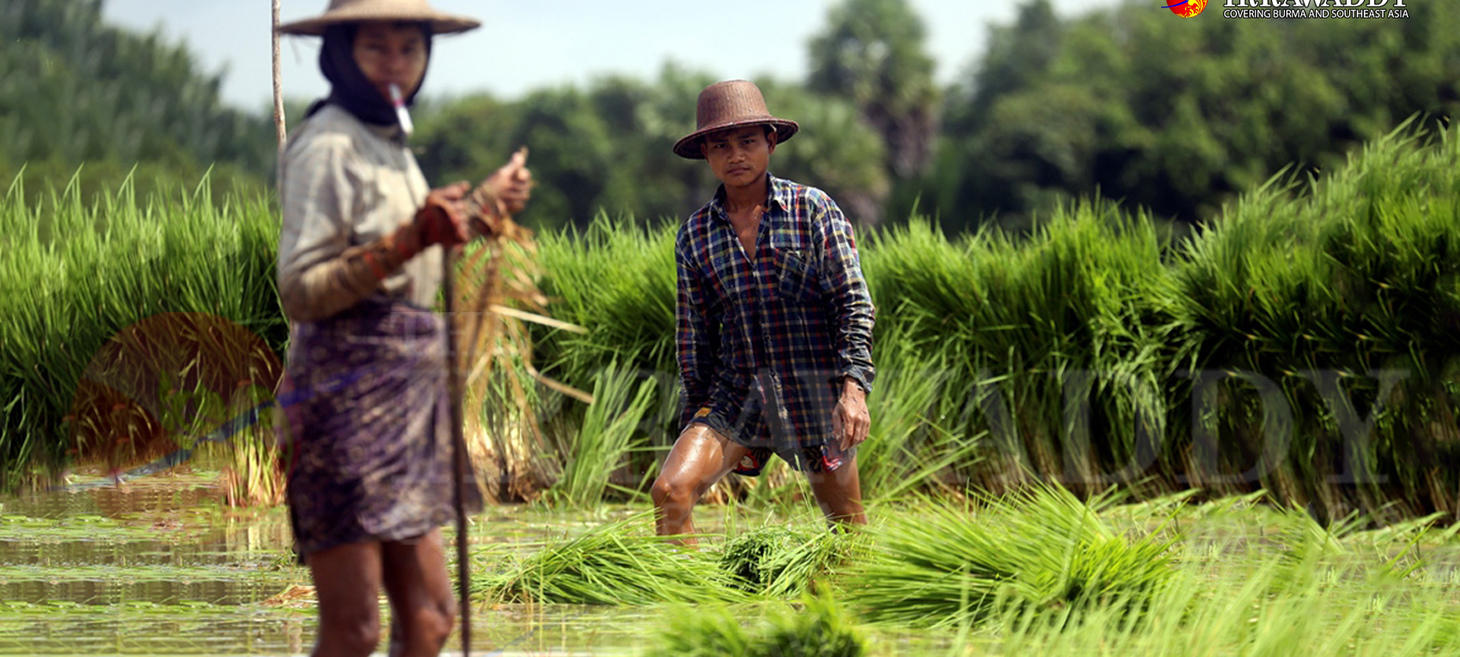
Farmers in Myanmar’s Mon State Warn of Severe Decline in Monsoon Harvest
Farmers in Mon State are facing a significant decrease in the monsoon rice harvest this year due to a shortage of seasonal workers and high production costs. This has led to a situation where farmers have had to reduce the land they use for cultivation and resort to less effective farming methods. The surge in prices of agricultural materials, like fertilizer, and the lack of available laborers have exacerbated this issue, with many farms in six out of ten townships in Mon State scaling back their cultivation efforts. As a result, there are concerns about yield declines and potential impacts on regional rice prices. The inability to secure loans for farming expenses and worries about government price controls on rice further compound the challenges faced by farmers in the area.

Rising drug prices and shortages hit major Myanmar cities
Drug prices have surged recently in major cities like Yangon and Mandalay, leading to reported shortages in certain medicines, as per drug sellers. The price hikes in imported medications are attributed to the increasing dollar exchange rate and strict import-export regulations imposed by the military regime at ports. Importers are now required to buy US dollars at official rates to obtain an import license, further driving up prices and depleting stock levels. This situation has significantly impacted the availability and affordability of essential household medicines, with prices skyrocketing to over 500 Kyats per tablet from previously around 150 Kyats. Shortages are expected to persist due to the regime's control over the dollar, affecting the supply chain of medications, especially in regions outside Yangon. Chronic disease medications, such as those for high blood pressure, heart conditions, lung issues, and diabetes, are notably scarce in both Yangon and Mandalay, posing challenges for those reliant on continuous treatment.
Ethnic Issues
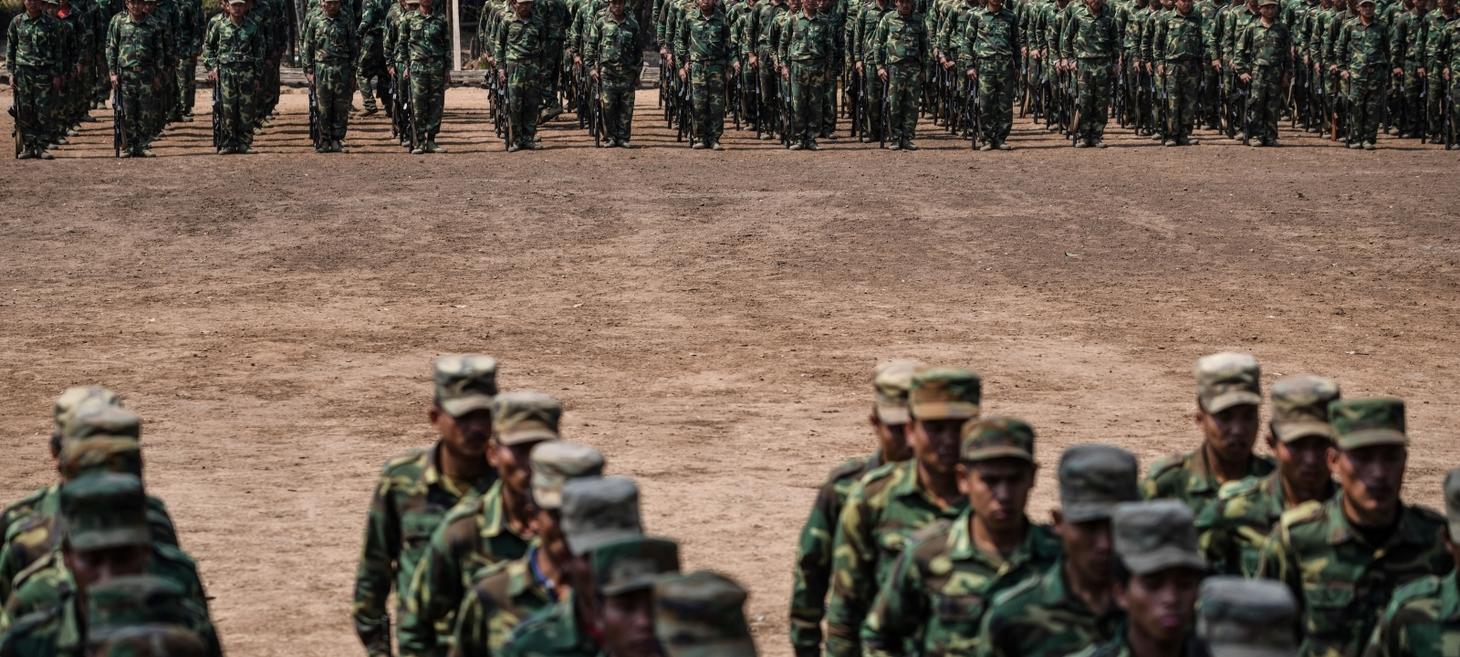
Blood brothers? Tensions test an old oath in northern Shan
In a complex and tense situation unfolding in Myanmar, the dynamics between the Kachin Independence Organization (KIO) and the Ta’ang National Liberation Army (TNLA) are straining due to overlapping territorial claims and historical alliances. The recent confrontation over a school reopening in Kar Lai village sheds light on the deep-rooted ethnic tensions and power struggles in areas like northern Shan State's Kutkai Township. With TNLA seizing territory during Operation 1027 and establishing its authority, clashes with KIO, historical allies turned rivals, are escalating over governance and influence. As both groups vie for control and loyalty among residents, the region's diverse population, including school children, faces the brunt of this ethnonationalist divide. The backdrop of past allegiances, grievances, and power dynamics further complicates efforts to avert potential conflicts, emphasizing the urgent need for dialogue and conflict resolution to prevent further civilian suffering and violence.
General News
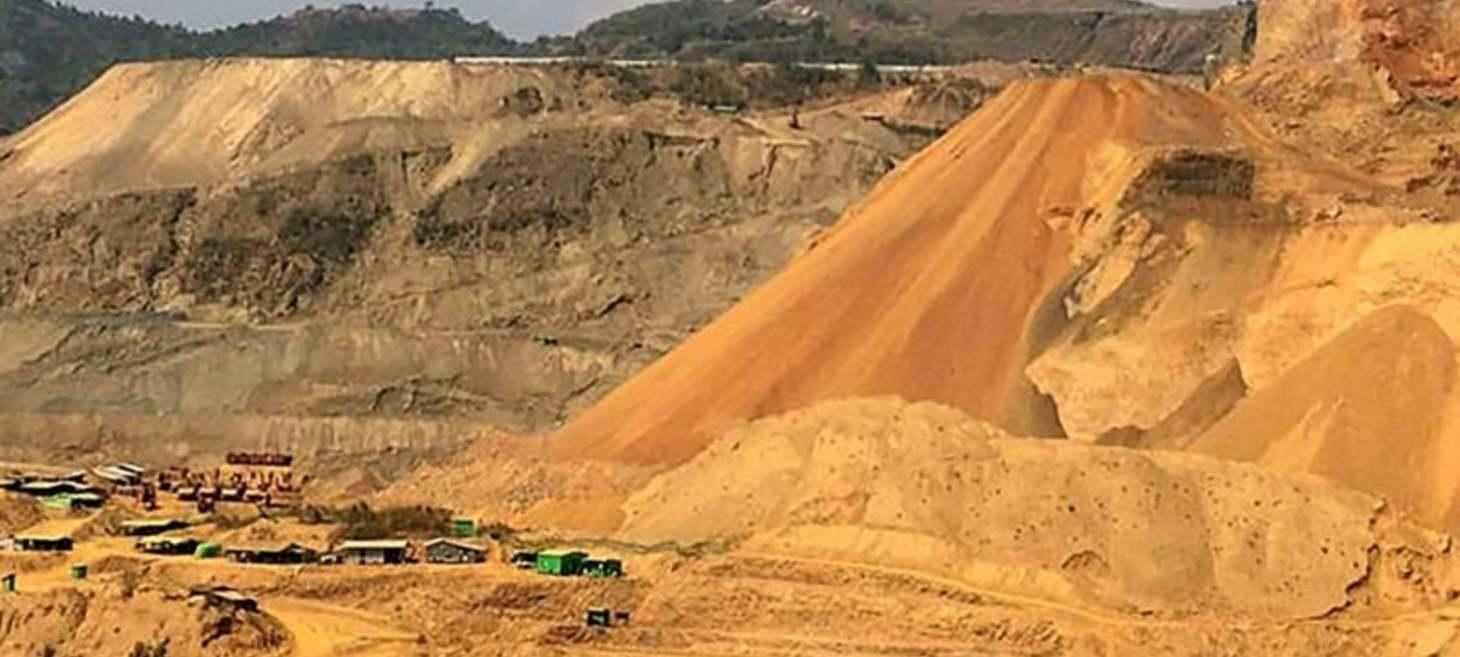
Rare earth mine collapse in Kachin State leaves 10 dead, dozens missing
A rare earth mining operation near the Myanmar-China border in Ngilot village, Panwa town, Kachin State, collapsed following heavy rains on 19 June, resulting in 10 confirmed deaths and around 30 individuals still missing. Owned by the family of Panwa militia leader Zakhung Ting Ying, the mine, located in a remote region known as Kachin State Special Region No. 1, experienced a landslide amid torrential downpours. Despite ongoing search efforts in challenging weather conditions, finding the remaining missing individuals poses a significant challenge. Concerns about environmental damage and health issues from the mining operations' chemical use have also been raised, adding to the tragic loss of lives in the landslides. Additional incidents have been reported in the area, including a prior landslide at a different rare earth mining site in Panwa town.
Government Media Sources
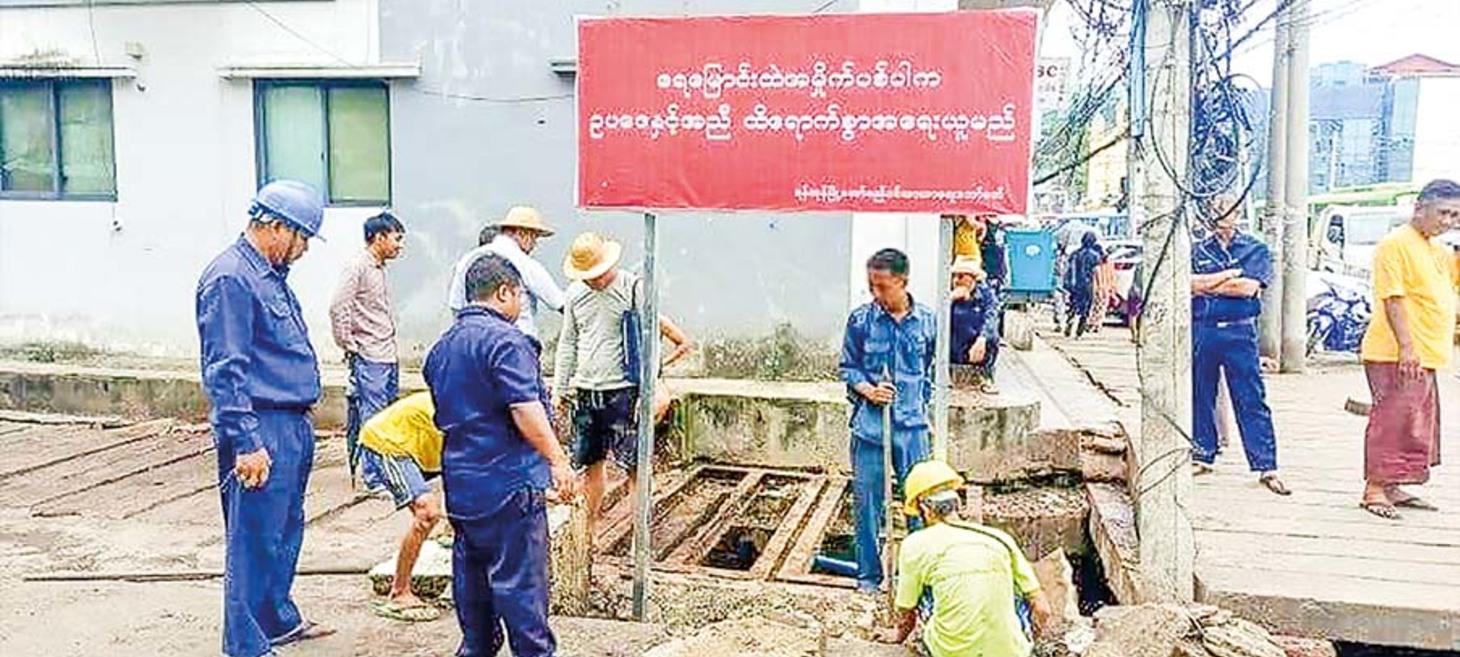
Strict penalties imposed for dumping garbage in drains, creeks, and rivers
The Yangon City Development Committee (YCDC) has introduced penalties, including fines, imprisonment, or both, for individuals found disposing of garbage in drains, creeks, and rivers across the Yangon Region. Warning notices displaying the consequences of such actions have been set up near various water bodies in several townships, emphasizing the need to maintain cleanliness, enhance the city's appearance, and improve water flow. Offenders could face fines ranging from K50,000 to K300,000, imprisonment of up to three months, or a combination of both as consequences for violating this prohibition.
Military
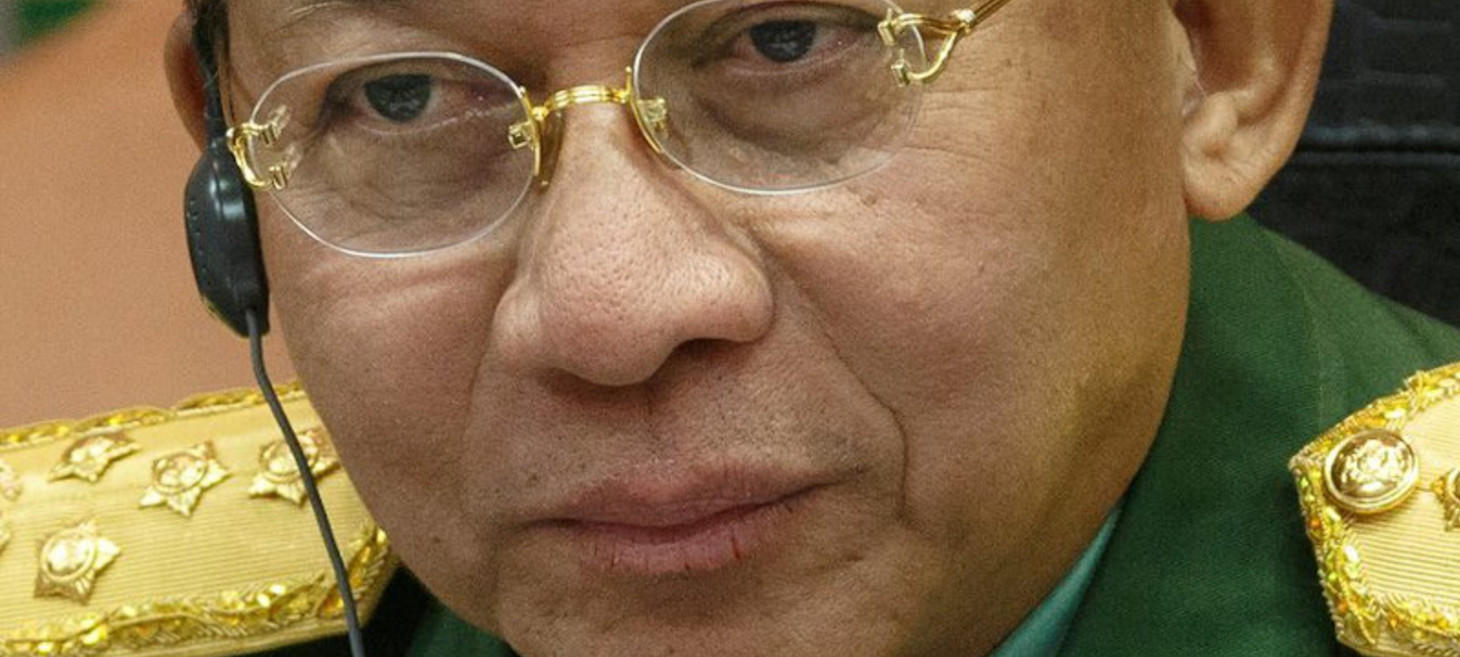
Myanmar: Junta Military Preparations Point To Brutal Next Phase In Conflict – Analysis
The Myanmar junta, initially aiming to consolidate power swiftly following the February 2021 coup, has instead faced continuous territorial losses without ever establishing legitimacy. Recent developments indicate that the junta is operating with increased urgency due to mounting challenges. Senior officer reshuffles under Gen. Min Aung Hlaing suggest heightened internal pressure, exacerbated by a weakening economy beset by inflation and food insecurity. The military's reliance on aerial bombardment illustrates a shift in tactics as ground losses and defections occur, with sustained civilian casualties. The junta's focus on urban control amidst border regions' loss signifies a strategic retreat to fortify the Bamar heartland for future offensives, demonstrating a divide-and-conquer approach. Key initiatives include regaining control of critical trade routes and intensifying conscription efforts amid opposition resistance, showcasing the junta's escalating militarization with potential implications for civilian populations and ongoing conflict dynamics.
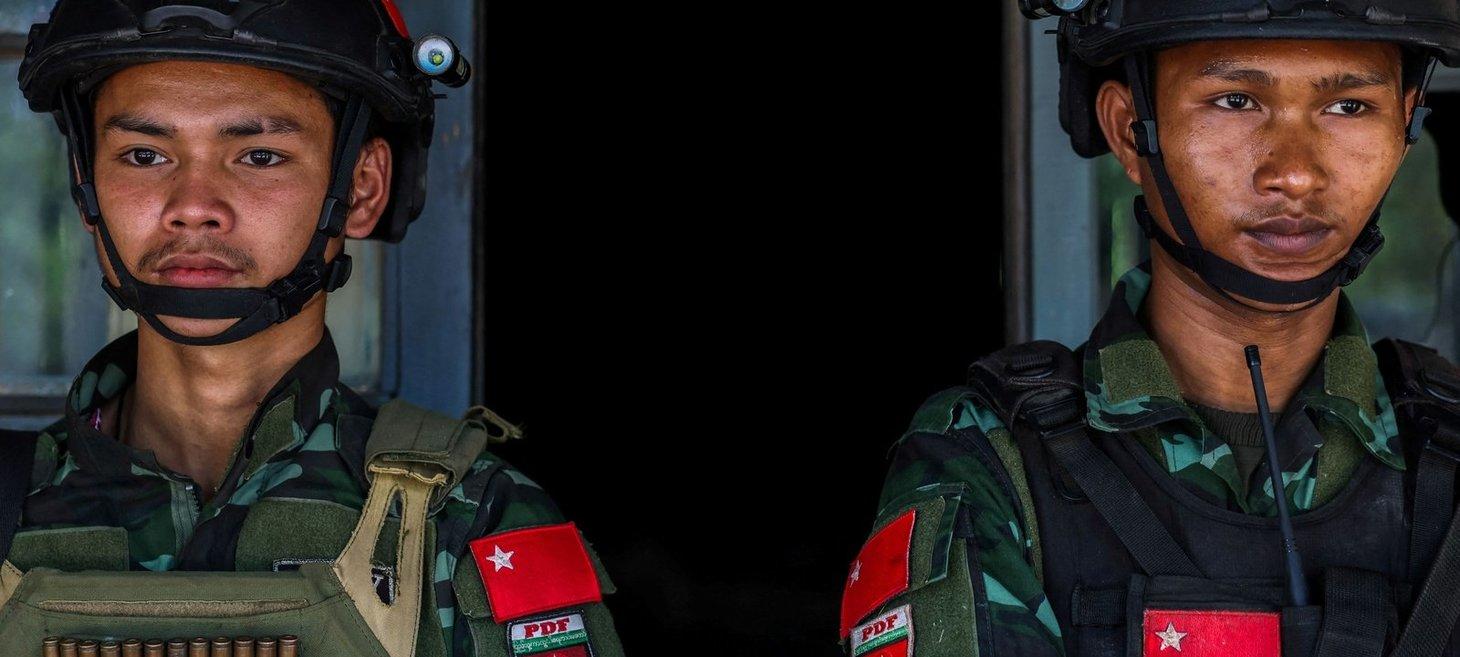
Myanmar's Junta Is Increasingly Isolated
Following the junta's coup in 2021 and the subsequent alliance between resistance forces and ethnic armed organizations to combat the military regime, the odds seemed overwhelmingly stacked against these united groups. Initially, the junta held a substantial advantage in weapons and manpower, displaying a willingness to use force against its own citizens. However, in a surprising turn of events, the junta has weakened significantly, losing control over a large portion of Myanmar's territory and facing challenges in weapon procurement due to international pressure and shifting alliances. Even its traditional allies like Russia and North Korea are constrained in their support, while China appears to be engaging in talks with the opposition. These developments mark a significant shift in power dynamics within Myanmar's civil conflict.
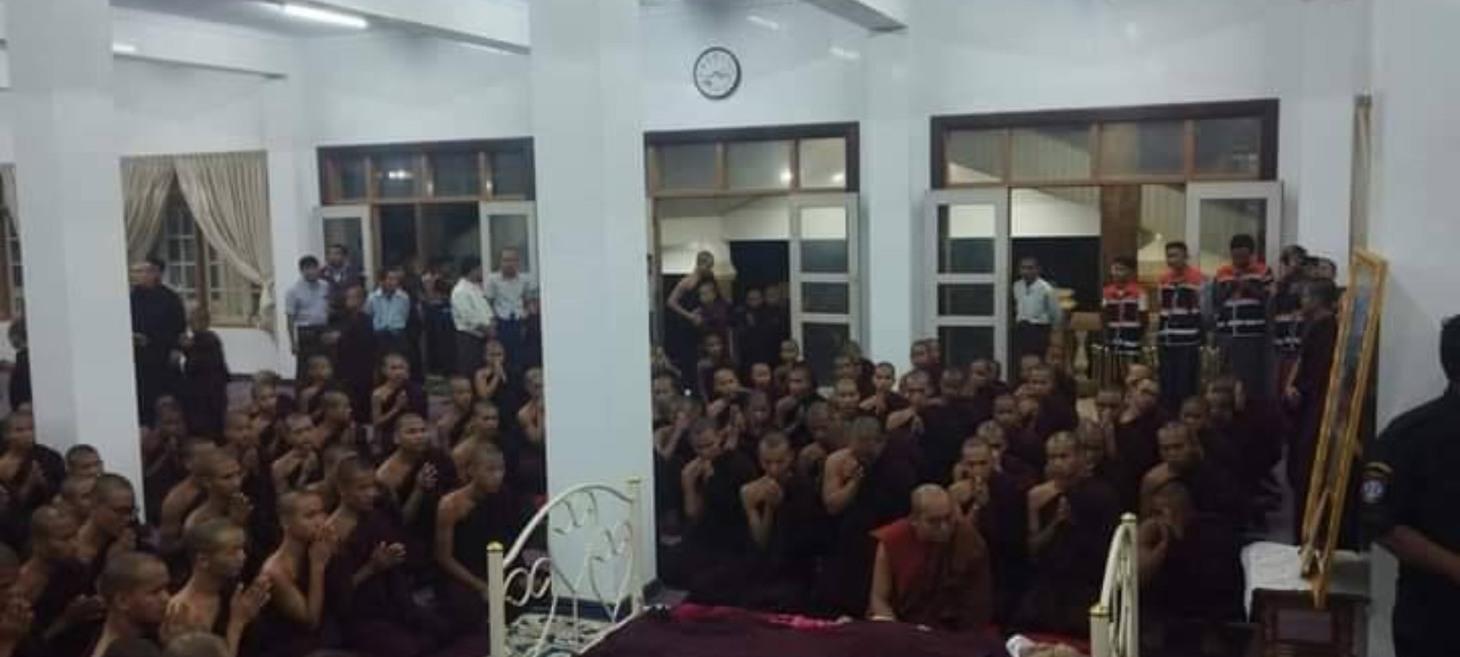
Myanmar Junta’s Attempt to Cover Up Troops’ Killing of Senior Monk Exposed
The Myanmar military junta faced scrutiny and embarrassment when their attempt to cover up the fatal shooting of senior Buddhist monk Sayadaw Bhaddanta Munindabhivamsa was exposed by another monk who witnessed the incident. Initially, junta media falsely claimed the monk was killed in a land-mine attack by People's Defense Force (PDF) fighters. However, a video surfaced online revealing the surviving monk's firsthand recollection of the event, contradicting the junta's narrative. The monk recounted that junta soldiers fired at their car without realizing monks were inside, leading to the tragic death of Sayadaw Bhaddanta Munindabhivamsa. The incident, which occurred near Tada-U Airport in Mandalay Region, sparked outrage within the Buddhist community, prompting accusations from junta-aligned media towards PDFs. The exposure of the junta's deception raised concerns about the regime's trustworthiness as tensions escalated amidst ongoing resistance against the military rule in Myanmar.
Protests
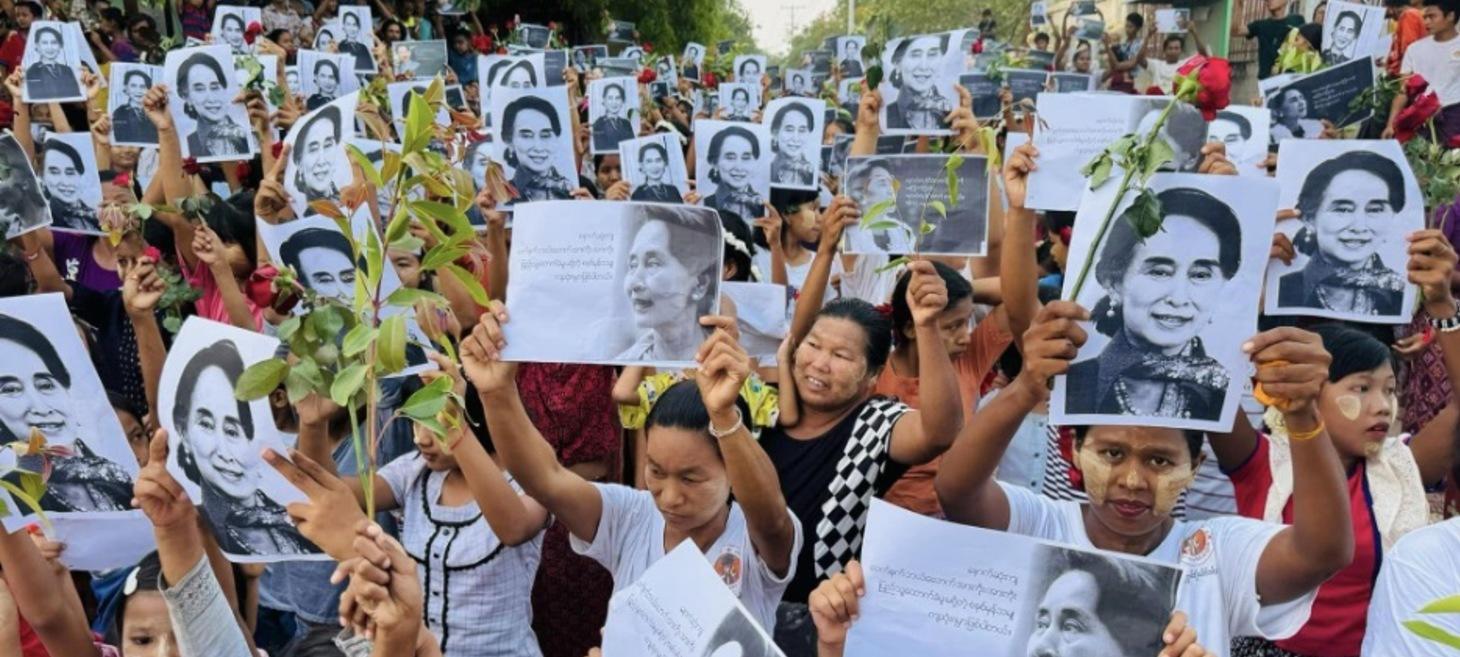
Flower Phobia Strikes Myanmar’s Ruling Junta Again, Dozens Arrested
On the 79th birthday of detained civilian leader Daw Aung San Suu Kyi, the military junta in Myanmar arrested approximately three dozen individuals, mostly women, for wearing or carrying flowers as a symbolic gesture of resistance. The crackdown on flowers followed a nationwide call by pro-democracy groups for a flower strike to commemorate Aung San Suu Kyi's birthday. Last year, a similar crackdown led to the arrest and imprisonment of nearly 100 individuals for similar flower-related actions, predominantly women. Despite widespread participation in the flower strike within Myanmar and abroad, the regime's response, including arrests and surveillance of individuals with flowers, has sparked criticism and highlighted the junta's skewed priorities amidst ongoing civil unrest and criminal activities.
Telecommunications
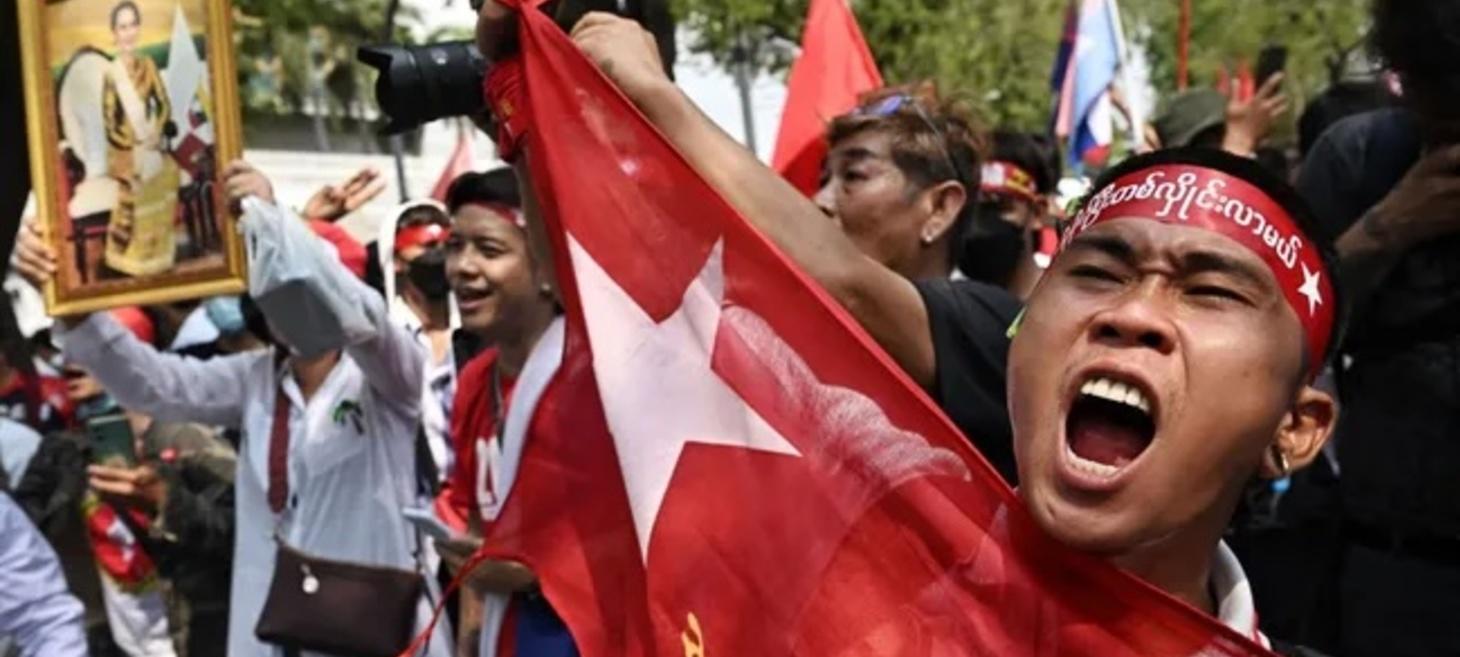
How the Myanmar VPN ban is plunging citizens into online darkness
The Myanmar military junta recently imposed a ban on VPN usage, plunging the country into a digital blackout as a means to control information flow. The ban, implemented since the end of May, has disrupted access to censored social media platforms like Facebook and WhatsApp, leading to restrictions on internet connectivity for citizens. Soldiers have been conducting random phone inspections, targeting individuals with illegal VPN apps and subjecting them to fines or arrests for possession. Wai Phyo Myint from Access Now highlighted the severe impact of the ban on internet access in Myanmar, with VPN services becoming a critical source of news for the population. Despite the junta's censorship efforts and external support from Chinese tech experts, VPN providers like Proton VPN are deploying anti-censorship technologies to help citizens bypass restrictions and maintain access to the open internet. Efforts to circumvent government-imposed limitations underline the ongoing struggle for digital rights in Myanmar, calling for international support to uphold free speech and information access.

Worse than China or Iran: Myanmar’s dangerous VPN ban
The Myanmar junta's recent ban on multiple Virtual Private Networks (VPNs) has severely restricted millions of people's access to blocked social media apps, messaging platforms, and websites, exacerbating an already extensive internet shutdown in parts of the country. Led by Brigadier General Lu Mon and involving departments from the Ministry of Transport and Communications and the military's Directorate of Signals, the ban has been implemented with the help of Mascots Technologies and Telecommunications Company Limited. With the installation of a web surveillance and censorship system developed by Geedge Networks, spearheaded by an individual known as the "father of China's Great Firewall," the military's crackdown on VPNs has stifled secure internet access, leading to increased risks and surveillance for online users. The ban on popular VPNs like Psiphon and Nord has further curtailed private online communication channels, leaving many individuals without the means to access the internet securely in Myanmar.